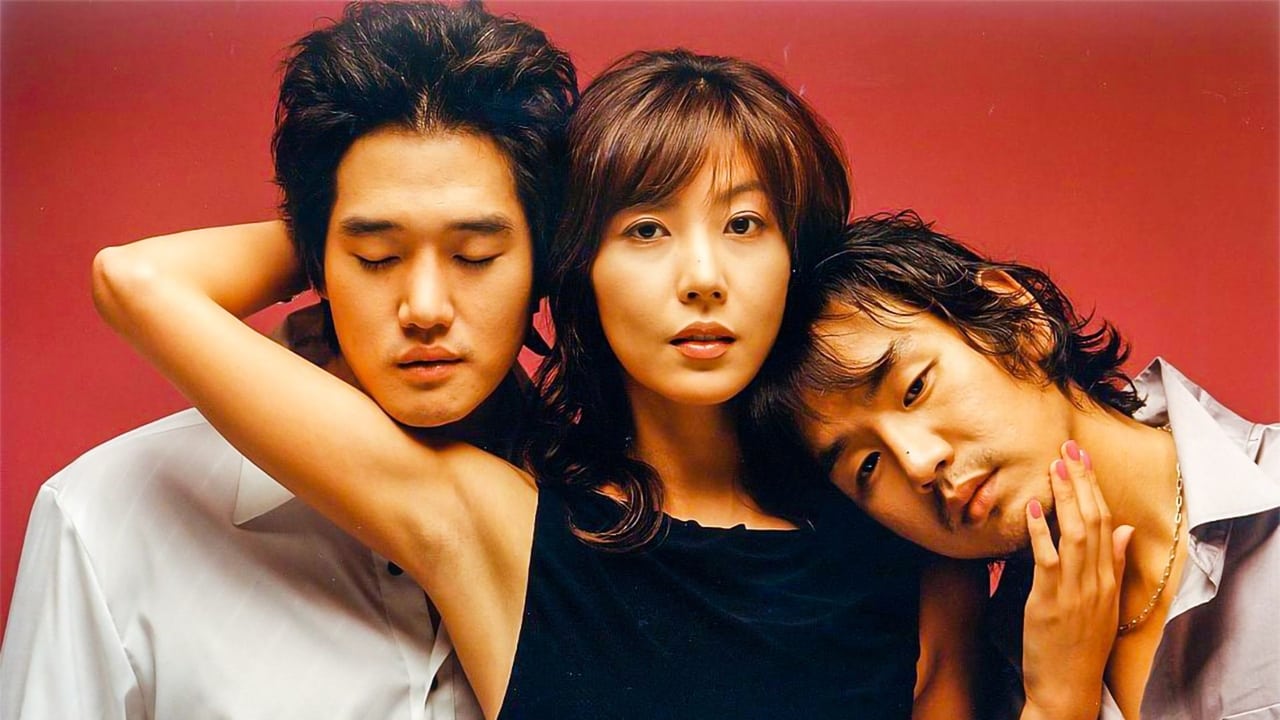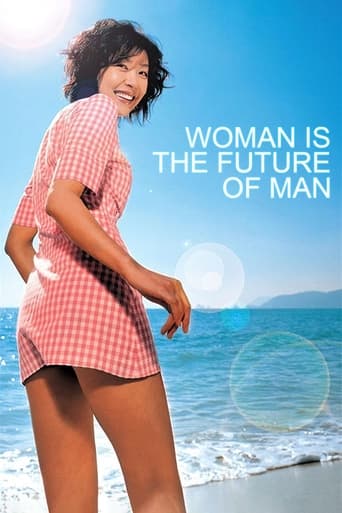



The performances transcend the film's tropes, grounding it in characters that feel more complete than this subgenre often produces.
View MoreIt’s sentimental, ridiculously long and only occasionally funny
View MoreOne of those movie experiences that is so good it makes you realize you've been grading everything else on a curve.
View MoreStory: It's very simple but honestly that is fine.
Sang-soo Hong has very unique way of story telling. Which can sometimes be confusing for audience unfamiliar with retrospections mixed with present storyline without any hints. Feels really diary like though require constant attention to avoid mentioned confusion. I think thats why my friend who is unfamiliar with non-Hollywood narration completely did not like it. He also accused me of wasting his time. I however share Scorsese's point of view who said that Hongs films unpeel like an orange .Films about 2 friends that meet over the beer after they haven't seen each other for few years. What we're witnessing is memories, resentment and so on coming back as the story follows. After drinking they decide to catch up with their lad friend. Scenes are built very. The story has rather dramatic character but there are subtle comical moments like the one in the bar with waitress. Ending is rather disappointing and abrupt. But it convey the fact that some things ends just very sudden and sometimes you don't even know when did it happen and why.In a sense point of this film is to convey some old truth. In the eyes of women all men are pigs and thats often truth. Although as a men i cant accept it. Oh and the film feels like it lacks some kind of twist or something really dramatic.
View MoreI admit I was expecting more after Scorsese's introduction. Still ,the film captivates the viewers emotions. At times, it seems a character study of Hyeon-gon, the painter/college professor, or a neutral view of the object of attraction, Seon-hwa holds on both male leads. Initially, Mun-ho and Hyeon-gon, old friends meet for a drink. Mun-ho has just returned from film school in the United States. Both decide to visit their shared love interest, Seon-hwa. The movie is intercut with flashbacks and Hyeon-gon's interactions with his students. Mun-ho and Seon-hwa were together until he left for film school. Later she has an affair with Hyeon-gon. Seon-hwa is the unconditional ever-loving person, Mun-ho is the man with deep love but not very sure of himself, while Hyeon-gon is the man who's love is cheap but somehow appreciated. This view of the film might remind some men of the dictum, "nice guys finish last". Mun-ho and Seon-hwa are together. She is raped under odd circumstances by an earlier flame. The film doesn't explain why she decided to go to a motel with him, even when he seemed violent and over-assertive. I'm not sure if this is common in Korean culture or if female obedience is encouraged, or if Seon-hwa is simply weak-willed. Later Mun-ho bathes and cleanses her of impurity, followed by sexual intercourse and the professing of his true love for her. After he leaves, she starts an affair with Hyeon-gon. While he seems attracted to her, he comes off as a selfish character who only thinks of his own needs. In the present, while he is married, he claims to have no love for his wife. He also engages in an affair with one of his students. Oddly enough, Seon-hwa holds no ill will towards him, reserving her anger for Mun-ho. At their reunion, Mun-ho reveals his guilt over abandoning Seon-hwa, while she berates him for the pain he caused her. All characters feel a sense of loss for what they once had. This is comparable to having coffee with a woman whom you deeply loved several years back but for whom you don't feel anything anymore.
View MoreMunho and Hyeon-gon are two friends who meet up years later. They go out to lunch and begin to reminisce. One is now a filmmaker and the other an art teacher, both share Seon-hwa in common. The story unfolds that Munho and Seon-hwa dated and Munhoo left her to study in America. While she waited, she began an affair with his friend Hyeon-gon. All these years later Munho has no idea and the two decide to go visit Seon-hwa together. Hyeon-gon expresses in the beginning that he is married and no longer sees his wife as a woman or wife anymore and instead as "human" therefore she can do as she likes. When the two meet up with Seon-hwa, Munho is obviously upset over the past and wants to rectify things with her, however, the triangle persists and then unravels into yet another entangle that made me a tad puzzled. What exactly this film meant and a tie in with the title, I'm not sure if I fully grasped. I liked many elements about the film, but felt that the lack of close ups was strange and distant, and the story felt almost open-ended. I would like to know more about it but I'd say it was still interesting.
View MoreIt's been three years since the release of Turning Gate and since then Hong has directed two more films. When I look at the Korean cinema, it's sometimes impossible to compare Hong to other directors, because his films are like one big diary of an experienced intellectual, full of infinite stories to share with the viewers. What makes his films even more special is that Hong likes to stick to a similar flow of storytelling and the overall style each time, even if the stories themselves are different from one another.This particular film deals with a reunion of two male friends who haven't seen each other in quite some time. First twenty minutes seem to be unaware of the film's direction, but that's not a problem at all with Hong's films. After some time of reminiscing, eating and drinking excessively, they decide to meet up with their old female acquaintance who one of the guys has not been in contact with since he moved to the States. He soon discovers that she took his abandonment very badly for the reasons he was very well aware of. Through those years apart the woman obviously underwent significant changes in her behavior, which become apparent when they both spend the night over at her place.Even though the story often touched on some dramatic moments, it was Hong's surprise choice of lightly uplifting classical music that often deflated the sentiment and heaviness of each character and tried to give room to some unintentional humor. The scenery is still all too familiar and pleasantly accommodative to the characters. The delivery from the actors is just as insightful and efficient as the story allows it to be.The length of the film stands at 88 minutes, making it Hong's shortest film to date and unfortunately the ending feels abrupt. Now the reason for that might be because the story and the actions chosen by some of the characters lack overall climax and feel somewhat nonlinear, but that's just how life is sometimes. The director still has an exceptional eye for capturing such situations, even if the finished product has to suffer consequences from an audience that isn't used to his style of storytelling or is expecting a certain closure. I got stranded right in the middle, greatly admiring Hong's roaming through hidden emotions and candid sex scenes, as well as his love for signifying details, but at the same time I felt slightly unmoved and in anticipation for a greater impact with his trademark symbolisms that made his previous films so memorable.
View More